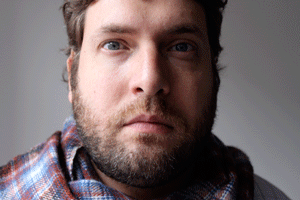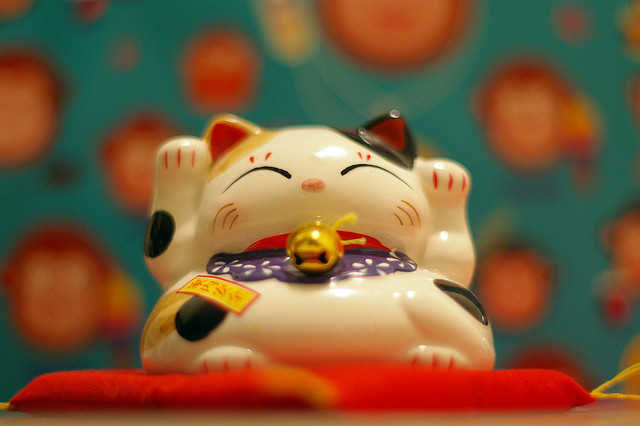
Photo: Liel Leibovitz.
In 1872, China sent a delegation of 120 boys to the US to learn English, live among New England’s socially elite families, and study at universities like Yale and Harvard. As it turns out, the kids did more than just pick up colloquialisms and row crew; some of them also went on to profoundly influence the development of post-imperial China. Authors Liel Leibovitz and Matthew Miller unspool the surprising tale in their new book, Fortunate Sons: The 120 Chinese Boys Who Came to America, Went to School, and Revolutionized an Ancient Civilization. Despite being set in the late 1800s and early 1900s, the Fortunate Sons‘ yearnings still resonate today.
Leibovitz, who grew up in Tel Aviv and now teaches at New York University, first learned about the 120 boys while traveling in Beijing with his wife a few years ago. He’d been watching television in the hotel when an old photo of a young Chinese boy “standing next to what unmistakably is Yale University” flashed across the screen. After researching the 19th-century Chinese educational delegation, Leibovitz says, “I felt a tremendous amount of empathy for what it was like to leave behind a culture and go in pursuit of education elsewhere.”
Leibovitz spoke with Mother Jones recently about New England accents in China and Ulysses S. Grant’s strongly-worded letter to the Qing dynasty.
Mother Jones: First, who are the “fortunate sons”?
Liel Leibovitz: The fortunate sons are a very interesting group of 120 young Chinese boys who were sent to America in 1872 by the Qing dynasty when they were very young—the youngest, I think, was seven, the oldest 13. They came here because the Qing dynasty, in the late 19th century, was sort of governing over a country in the midst of collapse. You know, its economy was growing weaker and weaker. Its population was growing more and more numerous. It was seeing itself kind of beseiged by Western armies who were demanding more and more concessions. And it understood that if it wanted to compete, if it wanted to survive, it needed to thrust itself into modernity. And it said, you know, the best way to do it would be to send young boys to the West to study, to learn, to understand technology, to understand all kinds of other matters of progress, and they chose America as their destination. And these 120 boys were the experiment. They were the group that came here and learned English and attended American university, and then returned to China.
MJ: As you say in the first part of the book, there was one man who was particularly responsible for putting together the mission. Can you tell us about Yung Wing?
LL: Sure. Yung Wing is a really fascinating story. He lost his father at a young age in the Opium Wars. His father was killed by the Brits. And, despite that fact, he never had any animosity towards Westerners. He attended a missionary school and when his beloved teacher said, ‘you know, hey, time’s up for me, I’m going back to America,’ Yung said, ‘well, take me with you.’ And the missionary got some funds and took Yung Wing back home to Connecticut. And when Yung Wing turned 17, he became the first-ever Chinese student to attend an American university. He went to Yale, which at that time was even more prestigious and exclusionary than it is now. He studied here for four years, he forgot his Chinese completely, he dressed in Western clothes, and when the time came to graduate, he said to himself, ‘well, great, all I have to do now is return to China, and sort of preach this gospel of liberal-progressive education that I learned here in America and use it to improve China.’
He goes back to his native village and finds that the country that he left behind is a country that’s changed greatly. He lives across the street from an execution ground. And he understands that since the Qing dynasty, the imperial order is so incredibly corrupt that every regional governor in China has nearly endless powers. Here he is, living under the control of one of these corrupt governors, and the governor has a system: He asks for bribes, and if you refuse to pay the bribes, you were executed. And Yung Wing sees bodies piling up, bodies he recognizes are innocent people. And he thinks to himself, you know, this sort of tyranny, this sort of complete discombobulated system of governance in which there’s really, you know, very little central planning, that’s a disaster. Something needs to be done about that.
He finds a fortune as a tea merchant, and when he has enough money, and enough friends and enough influence, he approaches his friends in the Forbidden City, he approaches some of the mandarins that he knew, and says, you know what? I have this idea. I went to Yale. I think that’s a terrific way to teach more and more Chinese kids not only the ways of the West but also the kind of values of innovation and technology and invention that make the West great, and that make all these nations be able to create things like warships and canons and all of these instruments of war that are subduing us now on the battlefield. And I think the only way we can counter that trend is if we educated our own kids the same way. Let me try. And the mandarin says, well, okay, you have something like 15 years and you can take something like 120 children. And by 1872, they set sail to America.
MJ: While studying in America some of the young students get to meet a number of iconic American cultural and political figures, one of them being Mark Twain. What role did these figures play and can you tell us about some of the others that the Chinese Education[al] Mission met?
LL: You know the Chinese Education[al] Mission really had the gift of arriving at the perfect time in America’s history. The boys arrive here in 1872, and by 1876, they attend the Centennial Exhibition in Philadelphia. And the boys are there, they get to meet with then president Ulysses S. Grant, who becomes a friend to some of them and a very ardent supporter of the Mission. They met with Mark Twain. And further more, they get to see in this exhibition all sorts of new fangled inventions. They meet Alexander Graham Bell with his telephone. They are aware of the gentleman named [Henry] John Heinz who’s invented this new condiment called “ketchup.” They see a precursor to the lightbulb. They really are absorbed in the midst of this tremendous, tremendous, tremendous moment of growth and invention. And the families that they live with, in, you know, some of New England’s finest communities, tended to be very wealthy, very well-regarded communities.
So Mark Twain was a friend when the Chinese mandarins kind of became a little bit too wary, a little bit too suspicious of the Mission, thinking that these boys were becoming too Americanized and too much of foreigners to be any good to China. Mark Twain wrote to New York and met with Ulysses Grant. President Grant wrote—he was no longer president at the time—but he wrote a very strong letter to the Forbidden City, urging them to let the boys stay. They really became part of the upper crust of society at the time.
MJ: Now that you mention the Centennial in Philadelphia, there’s an interesting moment when a Chinese official—who is, I believe, overseeing the Chinese pavilion at the expo—makes a remark about how the rest of the world is like a giant factory. And it’s interesting that you and Matt talk about that in the book because, today, you see much commentary about China playing the role as the world’s factory. And at last year’s World Expo in Shanghai, there was somewhat a parallel drawn between then and now.
LL: You’re absolutely right. It did, however, take a long while. The Mission was supposed to go on for 15 years. After nine years, however, a combination of factors—including, by the way, growing anti-Chinese sentiment in America, that culminated eventually in the Chinese Exclusion Act in 1882, which was the first time that a specific ethnicity was, sort of like, legally targeted by legislation—the Mission ended up being recalled after nine years. And on their way back to China, the boys stand on the deck of the ship to Shanghai, and they talk among themselves. And you know, most of them of them are pretty disheartened. Many of them ended up being just taken out of college before graduation. They left behind friends, they left behind communities, but they say to each other, you know, nevermind. At least we were guaranteed when we left home as boys that when we return, we would be sort of mandarins in training. We would be kind of like the masters of the land.
In the port in Shanghai, the boys are arrested immediately upon landing. They’re accused of being spies. Here they are and they say, we’re scholars, yet they don’t seem to speak almost a word of Chinese and they’re not dressed in the traditional Chinese scholarly garb, they’re dressed in these weird-looking wool suits. They spend about a week in jail, after which they’re sent to, for the most part, a collection of very lowly jobs, you know, scrubbing decks on ships in the navy and things of that nature.
It took them about 10 years, I would say, to really kind of show their true colors and to shine through. But when they did, boy, did they. I don’t think it’s an exaggeration to say they became modern China’s founding fathers. When millennia of imperial rule ended in 1912, and the first-ever republic started, its prime minister was a graduate of the Mission. His foreign minister was a graduate of the Mission. Commander of the Navy, the first man who figured out how to build railroads on a large scale, the founder of Tsinghua University—which until today is considered China’s Harvard—were all graduates of this Mission. And you know, here they are, walking around the Forbidden City, bumping into one another, and saying, in perfect, crisp, New-England-accented English, “That’s alright, old boy, take it easy.”
MJ: Another thing that struck me was how, as much as they were the ones to help usher China into this new era, they were also changed by the China that they returned to. Can you talk about that transformation a little bit?
LL: Well, yeah, I think the fascinating thing about them really is that these boys were never—they were never revolutionaries, you know, in the true sense of the word. They didn’t really want to, you know, turn Beijing into Binghamton. They wanted to bring progress to China, but all of them cared deeply and had very strong respect for traditional classic Chinese values. And learning how to balance these two seemingly unbalanceable values was kind of the quest of their life. For example, one of the boys, after he’d risen through the ranks, became in charge of mining operations. And this [American-educated] boy comes up with a perfect plan, ‘we’re going to mine here, we’re going to mine there,’ et cetera. And the villagers go crazy. They say, well, no, this is very bad feng shui, if you dig the earth, you’re disturbing the souls of the ancestors. He had to find sort of alternative ways, including, by the way, inventing some fantastic machinery for digging in the dark, to kind of appease their sensitivities and sensibilities. So China changed them because I don’t think they ever abandoned their core Confucian beliefs and their core respect for Chinese tradition. They tried to take from the American model what they thought made a lot of sense, which was good government, which was technological progress, which was fundamental values of human liberty and dignity, but at the same time, they were always very, very aware that tradition mattered. They were American-educated, they were all for progress, but they still a lot of respect for the prevailing system.
MJ: How is it that the education[al] mission’s story continues today?
LL: Well I think it continues today because even though they—everyone we write about in this book died 70 plus years ago. And yet the lives that they lived, the problems that they faced, are still very much the problems that we, considering [the] Chinese-American relationship today, face. They tried to live in a world in which they balanced progress and tradition, modernity and Confucian values, democracy and a different, more conservative hierarchy. And they didn’t want to live solely in America. And they didn’t want to live solely in conservative China. They wanted both these nations to work together. And today, as was the case 100 years ago, this is an extremely difficult achievement. It is very easy for us to fall into the sort of language of conquest, competition, subjugation, it’s very easy for us to be suspicious, but you know we’re making baby steps. I think [Chinese] President Hu Jintao’s visit to the White House was a tremendously positive step towards really achieving the big dream of the Chinese educational mission, which is a dream to finally have mutual respect and mutual friendship of these two nations. But we have a very long way to go.











